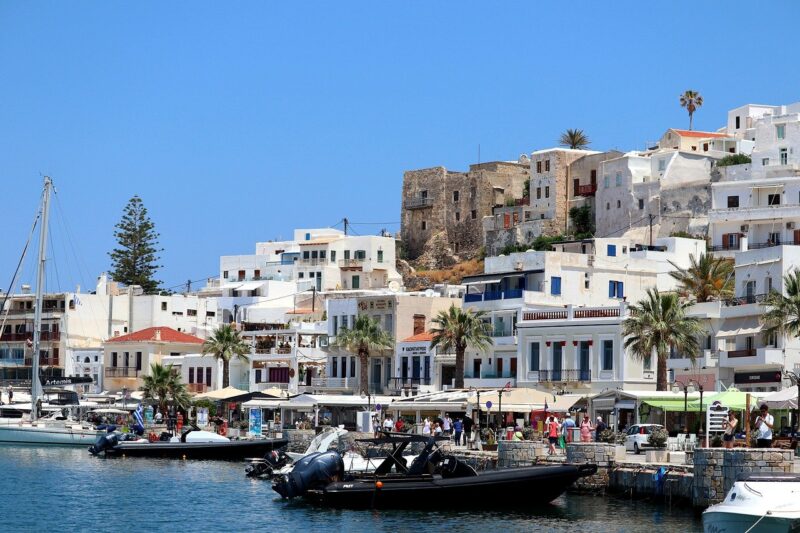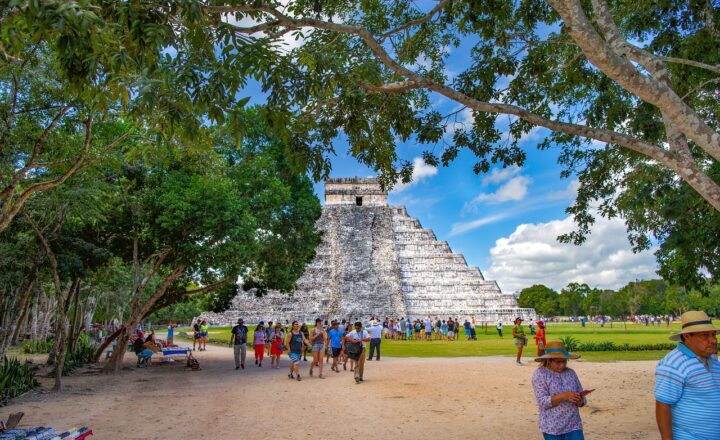The Enchanting Islands of Greece: A Guide to Paradise for History Lovers
November 16, 2024

Greece is a country steeped in history, and its islands offer a unique blend of breathtaking landscapes and rich cultural heritage. For history enthusiasts, the Greek islands are not just a travel destination; they are a journey through time, where ancient ruins, mythological tales, and traditional customs intertwine. Join us as we explore some of the most enchanting islands that history lovers should not miss.
1. Santorini: The Remnants of a Volcanic Catastrophe
Santorini, known for its iconic white-washed buildings and stunning sunsets, has an equally fascinating history. The island was devastated by a volcanic eruption in the 16th century BC, which played a significant role in the decline of the Minoan civilization. The archaeological site of Akrotiri, often referred to as the “Minoan Pompeii,” offers a glimpse into the advanced urban planning and artwork of this ancient civilization.
Visitors can explore the ruins, where well-preserved frescoes depict scenes of daily life, providing insights into the period’s cultural practices. Moreover, you can venture to the nearby volcanic islands of Nea Kameni and Palea Kameni, offering hikes to craters and thermal springs, blending natural wonders with historical significance.
2. Crete: The Cradle of Minoan Civilization
Crete, the largest island in Greece, is often regarded as the birthplace of European civilization due to the Minoan culture. The famous Palace of Knossos, thought to be the labyrinth of King Minos, is a must-visit site. As you walk through the halls and admire the grand architecture, you’ll feel the echoes of history surrounding you.
The Heraklion Archaeological Museum is another gem that houses an incredible collection of Minoan artifacts and art, allowing visitors to delve deeper into Crete’s ancient past. Additionally, the island’s charming villages and culinary traditions reflect a culture that has thrived for millennia.
3. Rhodes: The Island of the Knights
Rhodes is renowned for its medieval Old Town, a UNESCO World Heritage site, which showcases a unique blend of Byzantine, Gothic, and Ottoman architecture. The Palace of the Grand Master, once the residence of the Knights of St. John, now serves as a museum highlighting the island’s rich history.
Visitors can wander through the narrow cobblestone streets, admiring ancient fortifications and historical landmarks such as the Acropolis of Lindos, where you can witness spectacular views and explore ruins dating back to the Hellenistic period. Rhodes’ historical significance extends to its role in the ancient maritime trade and its connections with various civilizations throughout the ages.
4. Delos: The Mythical Birthplace of Apollo and Artemis
Delos, one of the smallest islands in the Cyclades, is a historically significant site that extends beyond traditional tourism. According to mythology, it is the birthplace of Apollo and Artemis. The entire island is an archaeological site filled with ruins from the ancient Greek and Roman eras.
Key sites to visit include the Temple of Apollo, the Terrace of the Lions, and numerous homes adorned with exquisite mosaics. Visitors can take guided tours to fully appreciate the stories and legends surrounding this sacred island, which was once a thriving religious and commercial center.
5. Naxos: The Heart of Ancient Greece
Naxos, the largest of the Cyclades, is often overshadowed by its more famous neighbors. However, it boasts a wealth of history that is deeply intertwined with Greek mythology. The island is home to the Portara, an ancient marble gate that has come to symbolize Naxos. Legend has it that this was once the entrance to the temple of Apollo.
The island’s villages, such as Apiranthos and Halki, preserve traditional Cycladic architecture and offer insights into the island’s vibrant history. Naxos is also renowned for its production of high-quality emmer wheat and local cheeses, representing a gastronomic heritage that dates back centuries.
6. Corinthia: The Bridge of Civilizations
Corinthia, though technically part of mainland Greece, holds significant importance for island-hoppers exploring the region. The Isthmus of Corinth connects mainland Greece with the Peloponnese, and its strategic location made it a vital trade route in ancient times. The ancient city of Corinth was one of the most powerful city-states in Greece.
The Temple of Apollo, with its magnificent columns, is a testament to the city’s architectural prowess. Visitors can wander through the ruins and visit the nearby Acrocorinth, the acropolis of ancient Corinth, for a panoramic view of the surrounding landscape.
7. Conclusion: Embrace the Rich Tapestry of Greek History
The enchanting islands of Greece are a treasure trove for history lovers, each offering a unique narrative shaped by millennia of myth, culture, and civilization. Whether you roam the ruins of ancient palaces, stroll through medieval towns, or immerse yourself in captivating myths, the stories of the past come alive in every corner of these islands.
Visiting Greece is not just a vacation; it’s a journey through time. So pack your bags, embrace the warm Mediterranean sun, and prepare to explore the magical dance of history that the Greek islands have to offer. Uncover their secrets, savor their flavors, and take home memories steeped in the enchanting history of one of the world’s most storied destinations.







